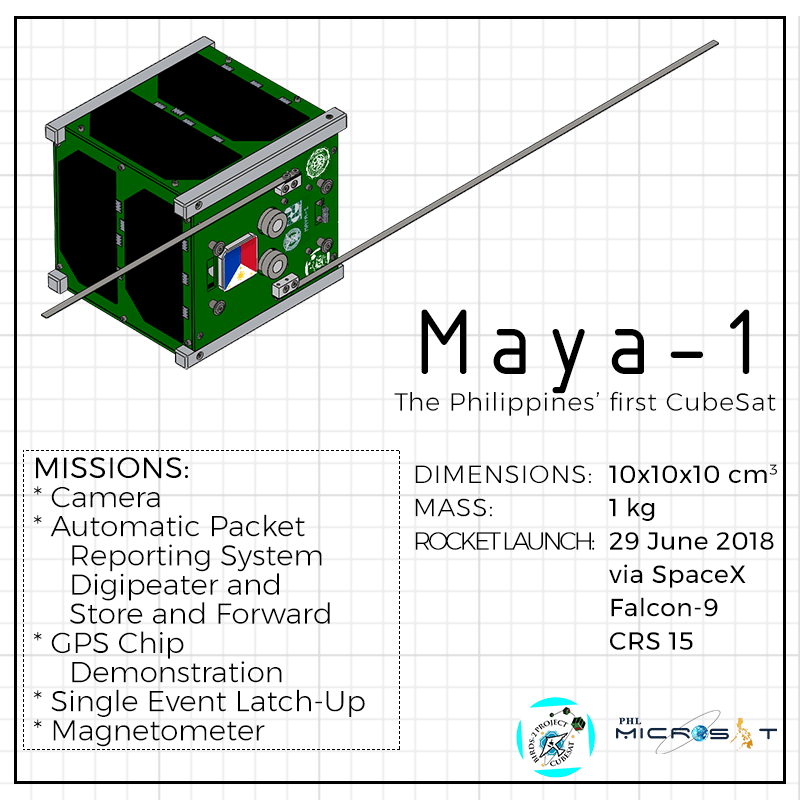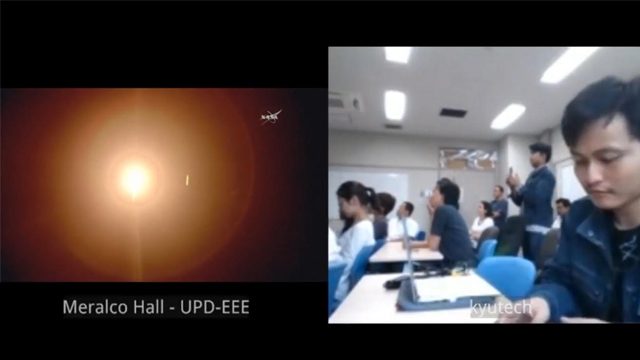SUMMARY
This is AI generated summarization, which may have errors. For context, always refer to the full article.

MANILA, Philippines – Maya-1, the Philippines’ first cube satellite (CubeSat) has flown into space through SpaceX Falcon-9 CRS 15 rocket. The rocket was launched into space on Friday, June 29, from Cape Canaveral, Florida, in the United States.
As of April 2018, at least 800 CubeSats have been launched into space.
This cube satellite, measuring 10 cm3 and weighs about one kilogram, aims to collect data from ground sensor terminals and pass them on to a ground control system. Maya-1 also carries an automatic packet radio service digipeater, enabling it to communicate with ham radios. It also has two cameras to capture images for research purposes.
Inside Maya-1’s body is a low-cost Global Positioning System (GPS), and a device that could measure magnetic field in space. Maya-1 can also log data corruption incidents due to space radiation.

The spacecraft carrying Maya-1 has 2,700 kilograms of supplies and scientific gear. Space station crew members will unpack the payload when the freighter arrives at the orbiting lab early Monday morning, July 2 (US time).
Maya-1 is one of the 3 cube satellites under the Second Joint Global Multi-Nation Birds Project or BIRDS-2 Project of the Kyushu Institute of Technology in Japan. Joining Maya-1 in the flight are other CubeSats, including Bhutan’s BHUTAN-1 and Malaysia’s UiTMSAT-1.
Maya-1 will be released into orbit in August.

Maya-1 belongs to the family of satellites produced by the Philippine Scientific Earth Observation Microsatellite (PHL-Microsat), a research program jointly implemented by the University of the Philippines Diliman and the Department of Science and Technology-Advanced Science and Technology Institute. PHL-Microsat previously launched into space Diwata-1 and Diwata-2.
Two Filipino graduate students under the PHL-Microsat program have developed Maya-1 in Japan. Joven Javier, who is currently taking his master’s degree, and Adrian Salces, who is taking his doctoral degree. – Rappler.com
Add a comment
How does this make you feel?
There are no comments yet. Add your comment to start the conversation.